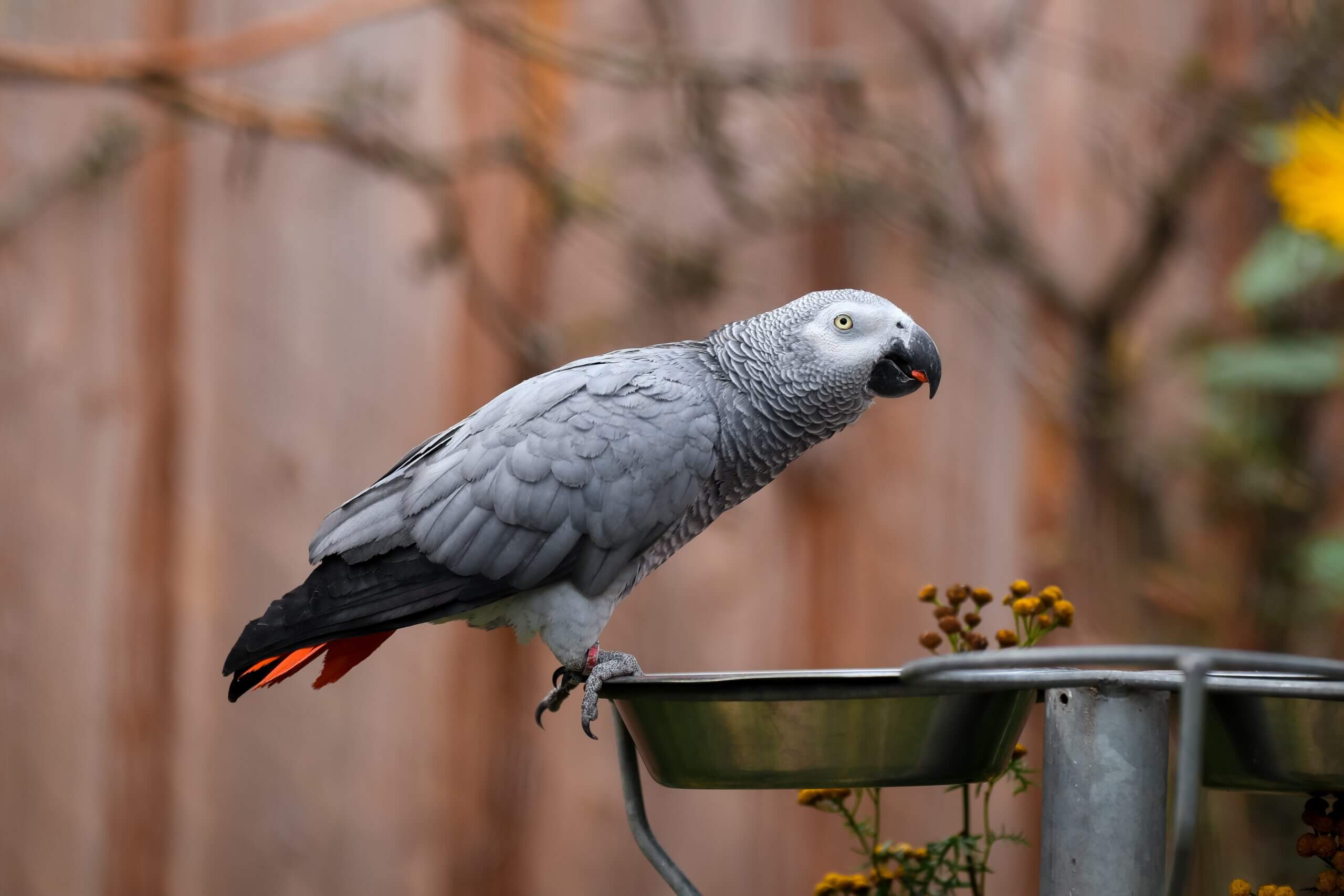Owning or rather, being owned, by an African Grey is a lifelong dream for some people, with the intensity of the bond between bird and human being unlike any other.
If you are one of these people and are lucky enough to be shortly introducing your new African Grey into your home, then you have certainly clicked on the right article. With this in mind, continue reading for the ultimate guide to owning an African Grey.
The Basics
Obviously, if you are serious about taking on the delight, not to mention the responsibility of caring for an African Grey, you will need to conduct a large amount of research into the breed, how to bond and how to keep them healthy and happy.
African Grey parrots, (scientific name Psittacus Erithacus), live around thirty years and usually grow to around fourteen inches from head to tail and have an average weight of four to five pounds. These beautiful birds are one of the most talkative breeds of parrot and have the intelligence of a five-year-old human being.
What is more, African grey parrots are so bright that they can often talk and mimic with logic and reply in context to the questions you ask them, although this is of course based on a high level of emotional and intellectual stimulation between you and your bird.
A Healthy African Grey
Naturally, you will want to ensure your new parrot is as happy and healthy as possible and so it is necessary to learn exactly what they need to eat.
Without question, you should register your new African Grey with a reputable veterinary surgery in Graham WA vets to make sure that you are keeping an eye on the physical health, mental health and nutritional competency of the bird.
75% to 80% of your parrot’s food should consist of high-quality pellets, full of vitamins and minerals and according to the age of your parrot, there are specific types of pellets you need to buy. The other 20% of your African Grey’s daily diet should be compromised of fresh vegetables and small amounts of fruit, such as the following:
- Spinach, Mustard Greens & Cabbage
- Pumpkin, Kale & Eggplant
- Broccoli, Cauliflower & Brussel Sprouts
- Blackberries, Strawberries & Blueberries
- Mangoes, Oranges & Watermelon
- Cherries, Grapes & Apples
Managing bird supplies entails organizing essentials like food, cages, and toys efficiently. Designate a specific area for storage, ensuring it’s clean, dry, and away from direct sunlight. Keep a list of inventory to track usage and replenish items as needed.
Bonding with Your Beautiful Bird
Emotional health and stimulation are just as important as physical fitness for your bird, especially one such as acutely intelligent as an African Grey.
As such, be sure to spend lots of time with your parrot each and every day, even if some of this time is simply spent in the same room as them as you get on with your work on the laptop or watch television.
You should also train and teach your African Grey a selection of different tricks, all of which are much simpler and faster if you tempt them with a bit of strawberry as a reward. Playing with your pet bird is also mutually enjoyable and mutually beneficial for both you and your African Grey.


![Siberian Husky Price In India [2024] - Kerala | Kolkata | Delhi | Mumbai | Pune SIBERIAN HUSKY PRICE IN INDIA](https://petsyfy.com/wp-content/uploads/2022/02/SIBERIAN-HUSKY-PRICE-IN-INDIA.jpeg)
![German Shepherd Price in India [2024]: How Much Would They Cost ? German Shepherd](https://petsyfy.com/wp-content/uploads/2022/02/German-Shepherd-Price-in-India-1-150x150.jpeg)



![Alaskan Malamute Dog and Puppy Price in India [2024] Alaskan Malamute Price in India](https://petsyfy.com/wp-content/uploads/2022/02/Alaskan-Malamute-Price-in-India-150x150.jpeg)